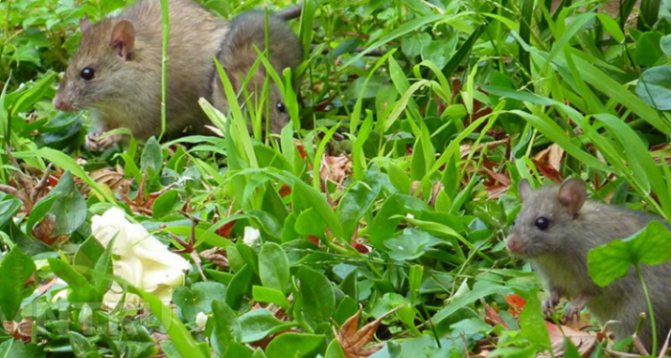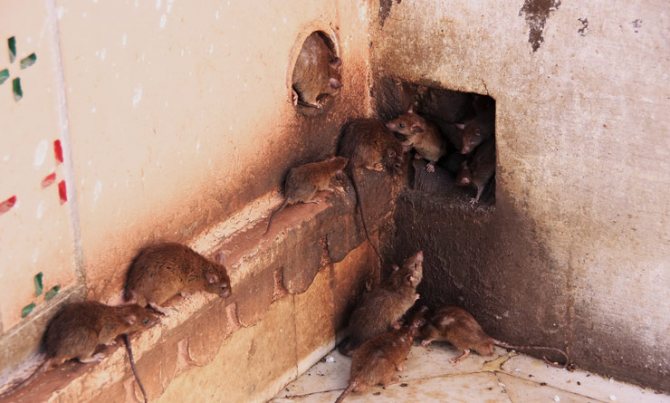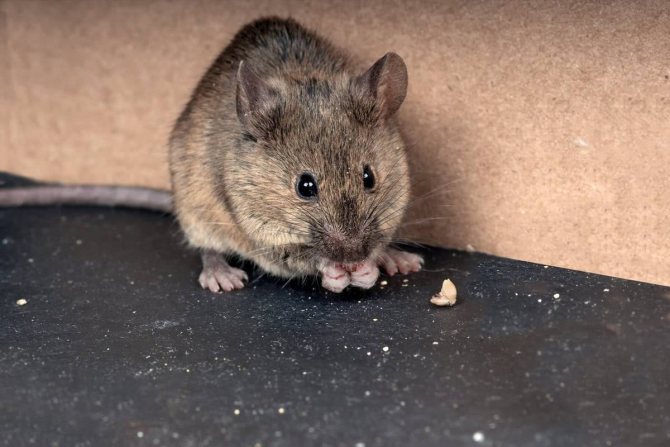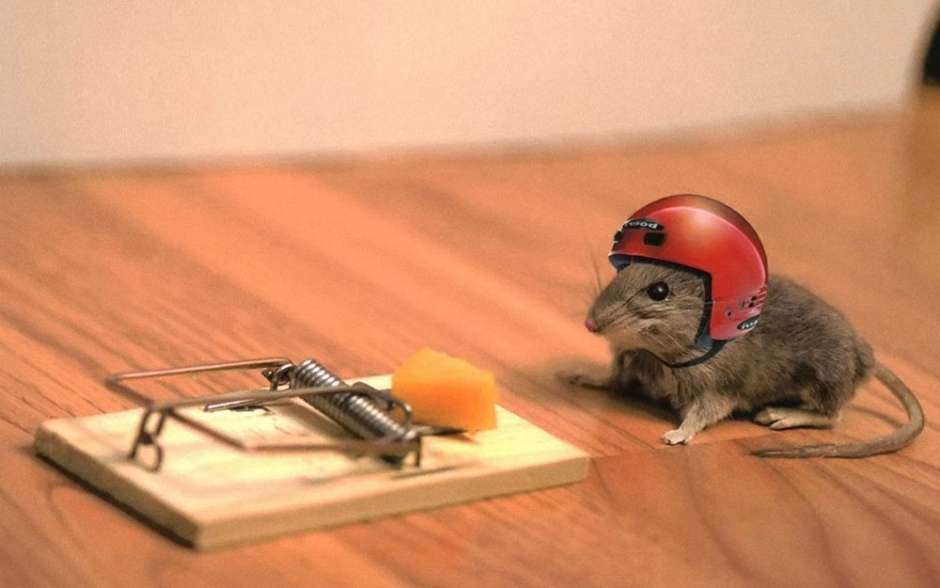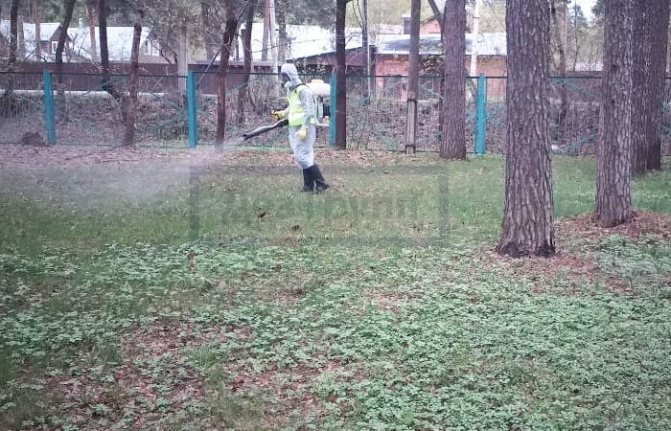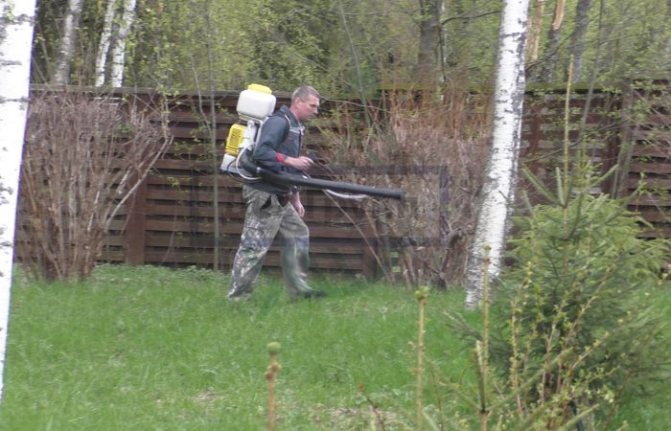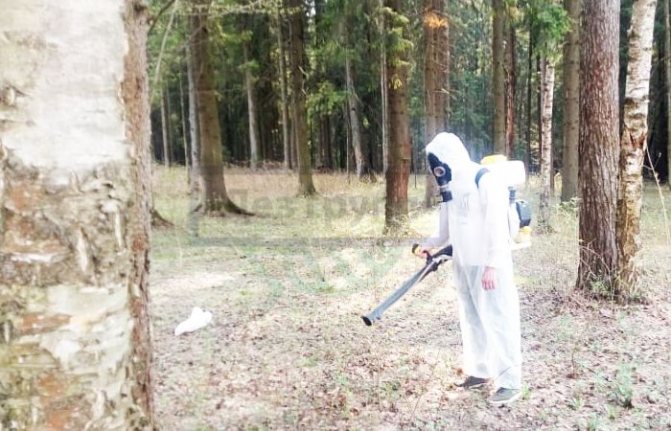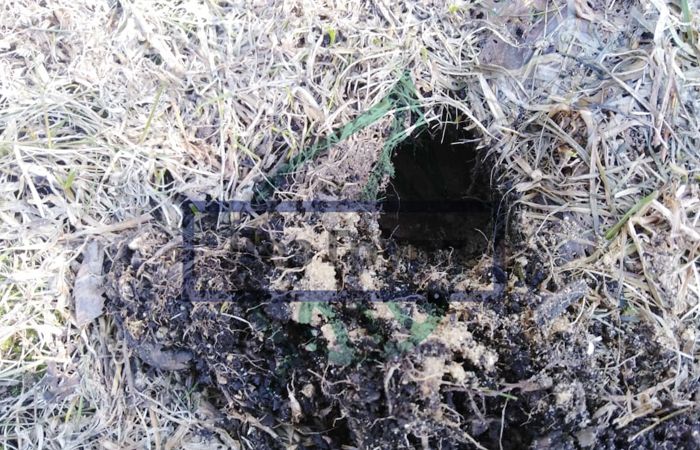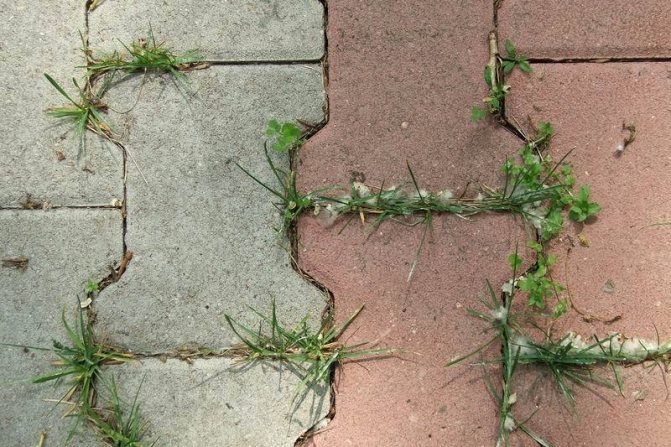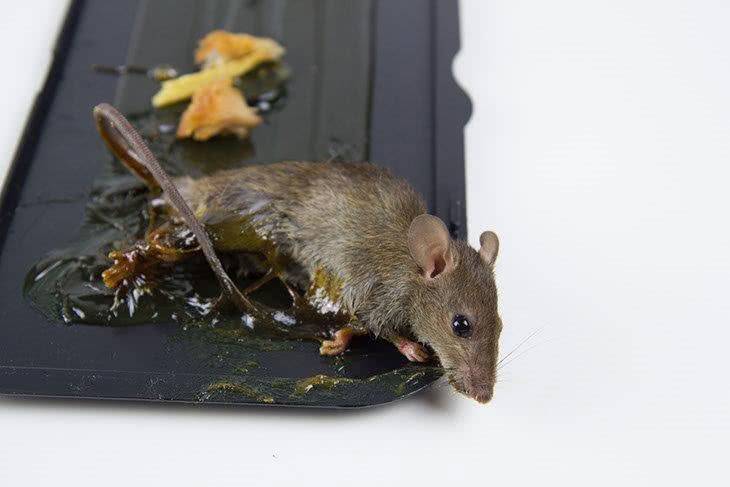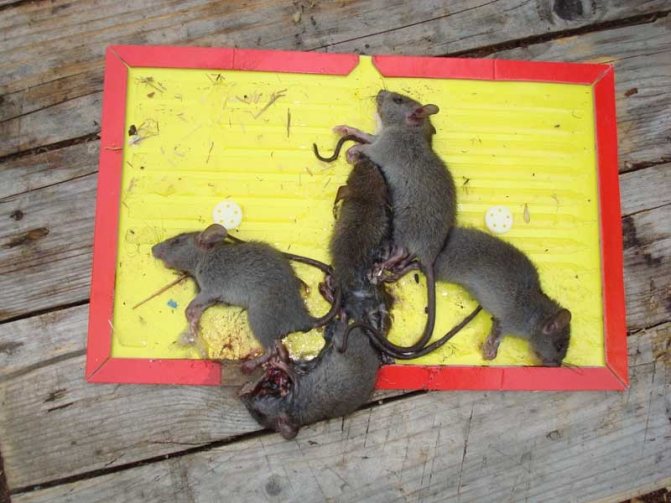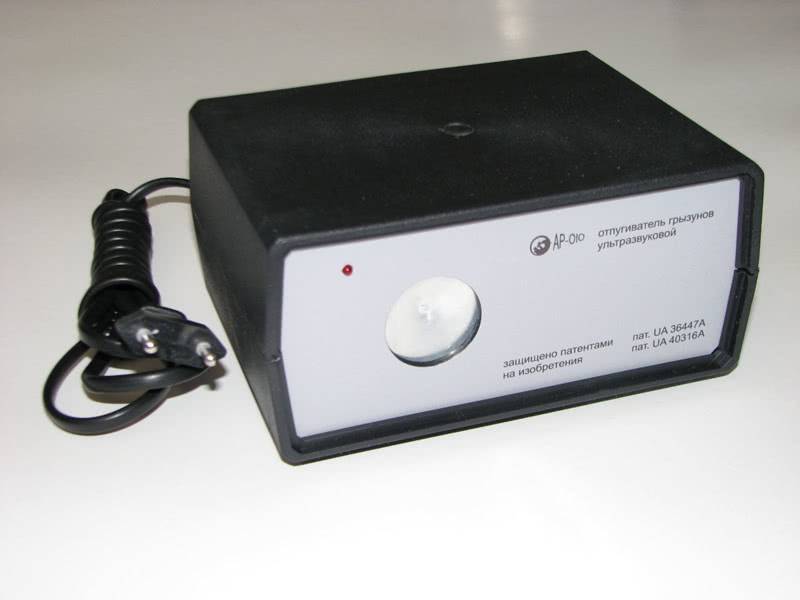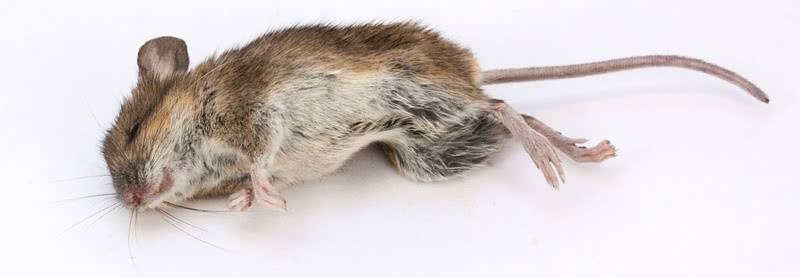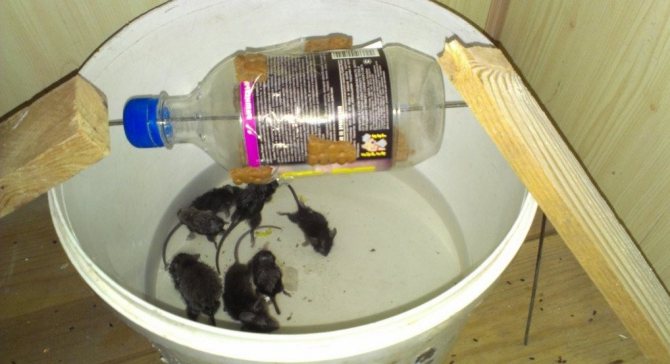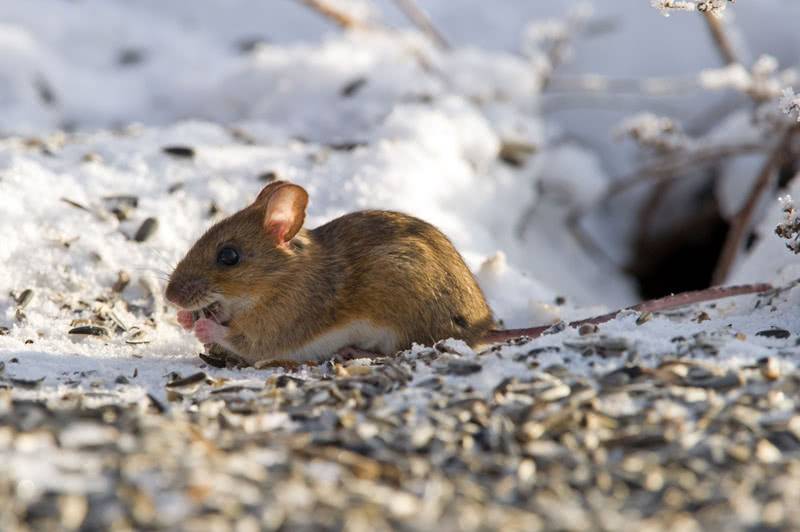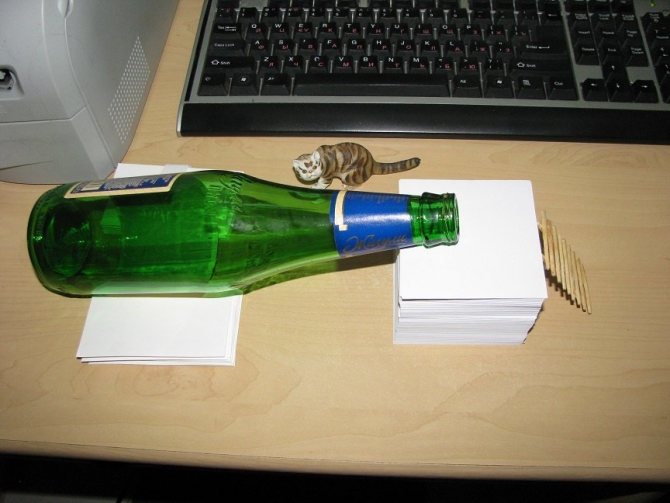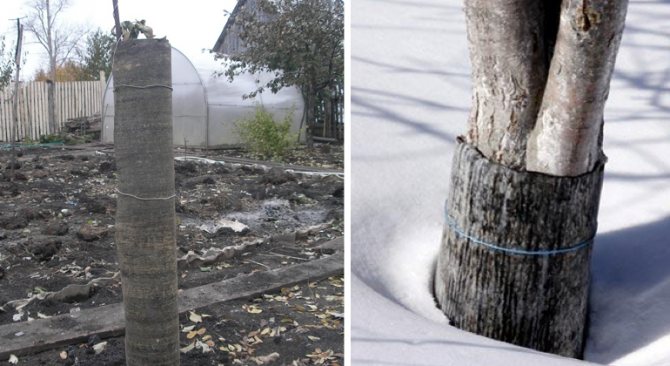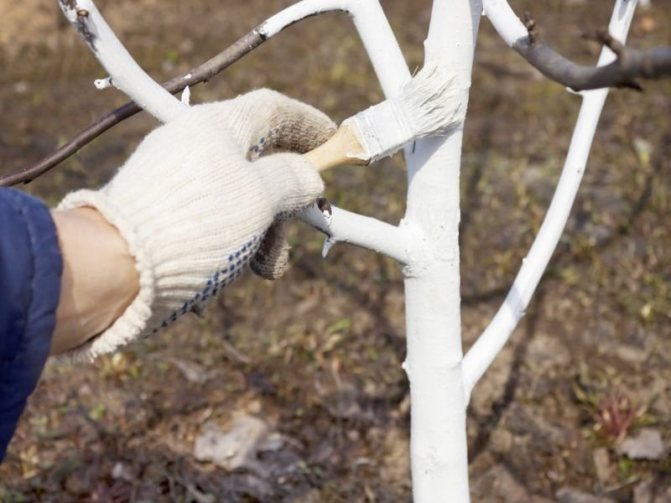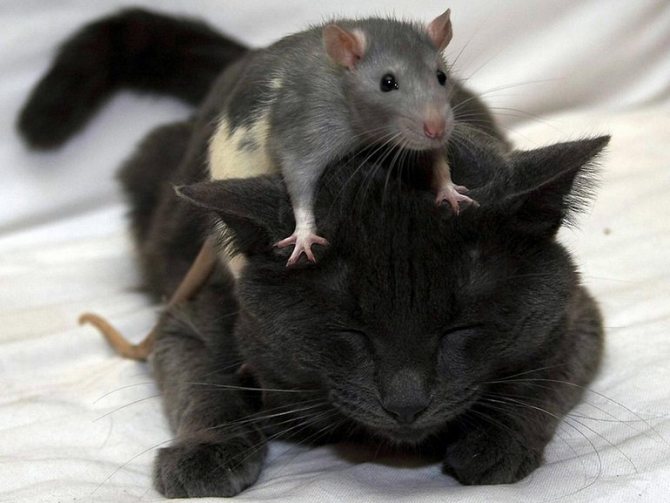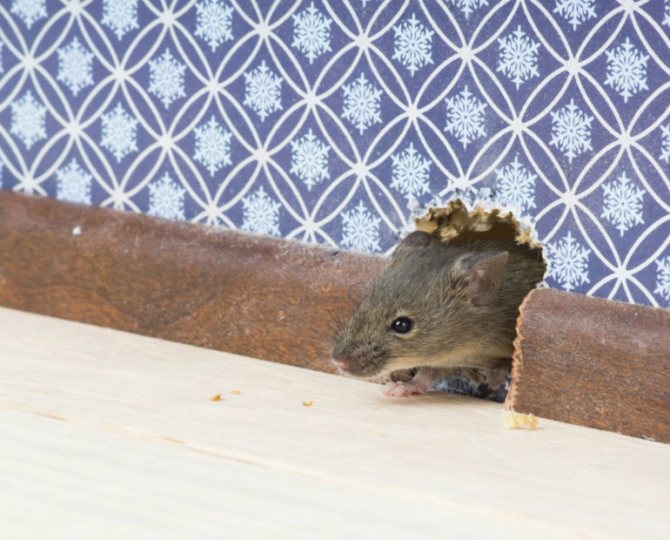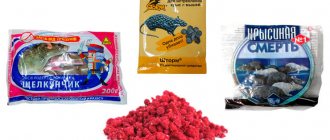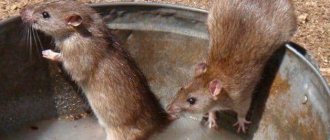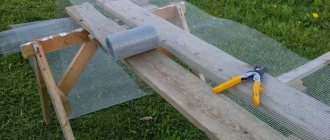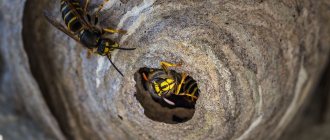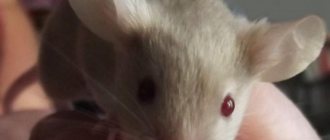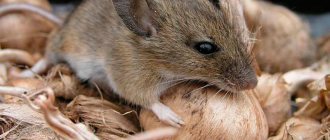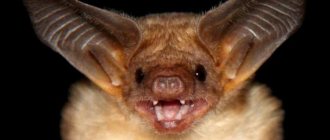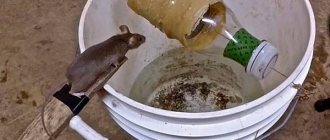Mice feel quite comfortable in natural conditions, however, being close to humans greatly simplifies their life, providing warm housing and an abundance of food. Because of this, wild rodents often become pests of country houses, gardens and vegetable gardens and it becomes necessary to fight them.
You can get rid of mice in the country with the help of:
- Preventive measures
- Poisonous bait
- Traps
- Electronic scarers
- SES
The correct selection and combination of various methods will help you quickly find the optimal solution and understand how to get rid of mice in the country forever in your case.
Signs of mice in the house
If there were no people in the house for a long time, then a specific "mouse" smell is felt immediately. It's even worse if you see mouse droppings on tables, in cabinets, and on the floor. And if traces of mouse teeth remain on the food supplies, there is no doubt that the rodents will settle in the house thoroughly and for a long time.
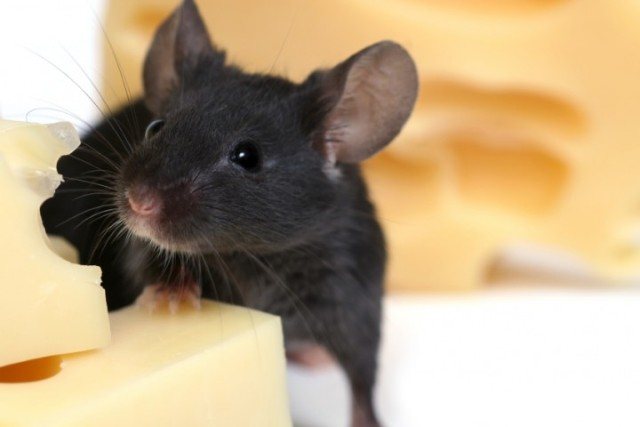
Given their appetite, indiscriminate eating and fertility, you can find their nests absolutely everywhere. They especially like the fabric, from which they can build a cozy place for breeding. They do not disdain wood, paper, polyethylene and even insulation. How to choose a remedy for mice in the country in winter in order to get rid of their visits for a long time?
Why are rodents dangerous to humans?
In addition to damage to property (clothes, shoes, electrical wires, furniture, kitchen utensils, food supplies), these pests pose a serious threat to the health of the inhabitants of the dwelling. Mice carry pathogens of the following dangerous diseases:
- salmonellosis;
- leptospirosis;
- tularemia;
- hemorrhagic fever;
- bartonellosis, or Carrion's disease;
- yersinosis;
- toxoplasmosis.
Insects that parasitize the bodies of these tailed "neighbors" also pose a threat to human health. To get infected from any of the listed diseases from a rodent, it is not at all necessary to be in direct contact with it. It is enough to eat a product gnawed by a mouse, inhale dust containing particles of mouse excrement, for example, while cleaning a basement or attic.
Ways to deal with mice in the country
The fight against rodents must be carried out in two directions:
- to engage in prevention, using methods that force mice to "voluntarily" leave the territory;
- carry out the physical destruction of mouse populations.
The arsenal of available means of struggle can be divided into the following categories:
- Folk remedies based on long-term observations.
- Physical methods using mechanical devices: mousetraps, traps and traps. This also includes the domestic mouse-catcher and ultrasonic scarers.
- Chemical means for the destruction of gray predators: all kinds of poisons, aerosols, poisoned baits. An efficient but unsafe way.
Choosing a way to deal with mice in the country in winter, everyone is guided by their specific circumstances.
What folk methods of fighting mice can be used in the country?
For many centuries, mice have been trying to settle next to a person, and he finds new ways to get rid of them.There are many tips, some surprise with their ingenuity, but only time-tested ones can be recommended.
- Mix equal parts lime and wheat flour, add a little salt. Spread out the bait and put water next to it. A blood clot formed in the digestive system of a mouse causes its death. If the lime is replaced with gypsum, the effect will be the same.
- Stock up from the summer with a large number of "anti-mouse" herbs and spread them in the house, basement, in drawers with clothes. Elderberry, mint, wormwood, tansy, wild rosemary, blackroot roots and seeds can be found in and around your home garden. All herbs are effective in dried form, except for elderberry - its branches are laid out freshly picked and not on food (some of its parts are poisonous). Wormwood bundles are laid along the walls, they can also be used to tie the trunks of fruit trees in the garden to scare off voles. The bundles are tied with the tops down.
- If there are no grasses, and you find minks that the mice gnawed in the floor, you can take the pharmacy mint oil, moisten a cloth with it and stick it in the holes - the mice will leave.
Preventive measures
In order to avoid the reappearance of mice at home in the future, you should adhere to the following recommendations:
at their summer cottage
- exclude littering of areas and buildings located on the territory;
- clean the garden every spring;
- store firewood neatly folded in a place adapted for this purpose;
- found burrows and nests of rodents are subject to destruction;
- trash cans should be placed away from the residential building;
in the House
- products must be stored in places inaccessible to rodents;
- check all the places near the water supply. Mice should block their way to the water;
- with a certain frequency, you need to clean the house;
- when mice burrows are found, traps and baits should be set;
- if possible, the detected rodent nest should be destroyed. You can even resort to partial disassembly of the wall.
The migration of mice can be prevented if the preparatory measures are carried out correctly. All available means and materials are used. Both hares and other pests are deterred by any moving objects. Anything that is in motion, a mouse or a hare will be afraid to approach. So, the usual silver rain, which is hung on a Christmas tree, will scare away an uninvited guest at the slightest movement of the breeze.
When snow falls around trees and shrubs, paths should be trodden, tightly tamping the entire perimeter. After all, rodents make a path for themselves through loose snow, and such an obstacle will serve as a worthy obstacle.
Physical methods of killing mice
There are quite effective physical methods of how to get rid of mice in the country in winter, but they all involve the need to remove the captured mouse from a trap or mousetrap and somehow get rid of it.
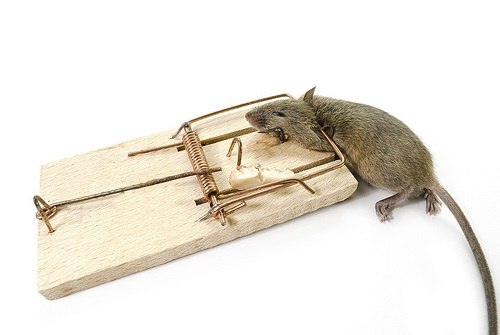

A simple mousetrap works half the time
If there are a lot of mice, then a considerable number of mousetraps will be required, and this method is not always effective: the rodent can eat the bait and deftly dodge the triggered mousetrap. Domestic cats live at the dacha with their owners only until winter, and not every cat "mouse", some are afraid of mice more than the owners.


Electronic traps, which are triggered by movement and can kill a rodent with an electric shock, have become a technological and effective means of trapping mice.
There is also special glue, but store-bought glue traps do not do the job very well; it is better to buy glue in tubes and make your own traps: a continuous line of glue is applied to the sheets of cardboard with a thick layer around the perimeter, and bait is put in the middle. Instead of cardboard, you can take disposable plastic plates and prepare a "treat" on them.
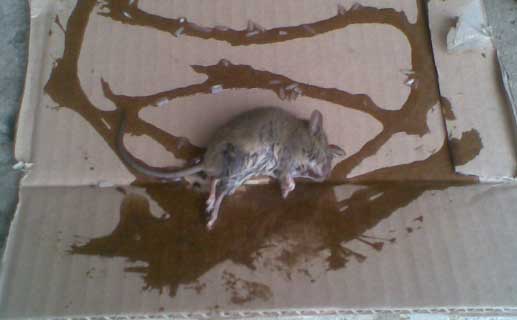

The glue trap is an effective way to trap mice
It is advisable to apply glue, leaving free space around the edges: when the mouse sticks, but it sticks tightly, "bear disease" happens to it, and it is not fun to remove excrement from the floor. Moreover, the adhesive layer retains its effect for the next year. While no one lives in the country, such traps can be laid out everywhere. The mouse that comes across is thrown out along with the cardboard, without killing it in the house.
What do we know about voles?
Among rodents and garden pests, there are many very original specimens, such as a shrew, a water rat, and a mole. But the vole can safely claim the title of the most common species of garden dwellers. What do we know about her? This rodent is characterized by:
- small size - the mouse usually weighs no more than 30 grams, grows in length up to 12 cm;
- nocturnal lifestyle - during the day they prefer to sit in houses built of grass, or minks;
- year-round activity - the pest does not hibernate and is very inventive in searching for food in winter;
- gluttony - during the day, one rodent eats a volume of food equal to its own weight;
- fertility - in a year one female can give birth to 3-4 litters of mice, each of which will have up to 8 individuals.


Chemicals for the elimination of mice
Chemical preparations guarantee a reliable and fast effect in the fight against rodents. Poisonous substances are placed in the bait, sprayed or applied in the likely places of the appearance of mice. Such drugs as "Zoocoumarin", "Nutcracker" and others cause suffocation and death; moreover, the mice, having eaten the bait, seek to get out into the fresh air.
Photo of chemical agents for fighting mice
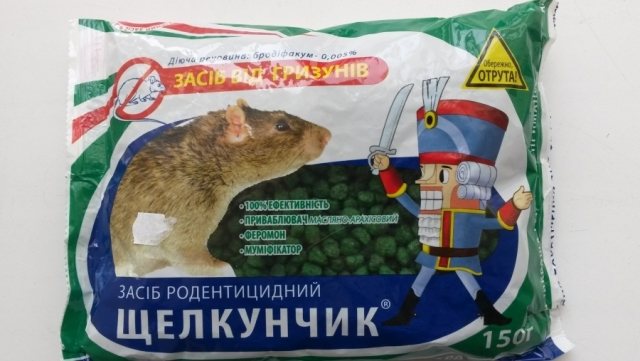

Other drugs cause massive death within the rodent population. Such a poison for mice in the country for the winter will take a little, but it is worth remembering that rodents can die in hard-to-reach places and this can only be understood by an unpleasant smell: you will have to look for a hole and somehow get rid of the mouse remains.
Chemicals are an effective remedy, but they should not be used when there are children or pets in the country.
Ultrasound is an effective means of influencing the mouse population
There is another effective way to protect the cottage from mice in winter. We are talking about ultrasonic scarers. A person does not perceive its waves, and mice hear a terrible roar, from which there is nowhere to hide.
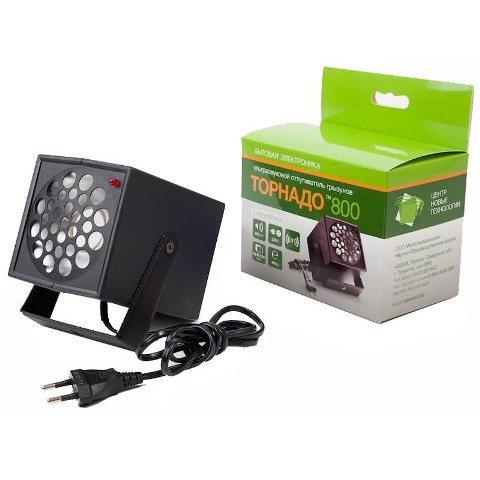

"Tornado" 800 is an ultrasonic device designed to combat rodents - rats, mice
If you buy a device that does not work from the mains, but on batteries, you can leave it in an empty house - then the mice will stay as far as possible from your summer cottage. So, there are many ways to fight, which one to choose: humane or not very - it's up to the owner of the dacha.
Ultrasonic devices
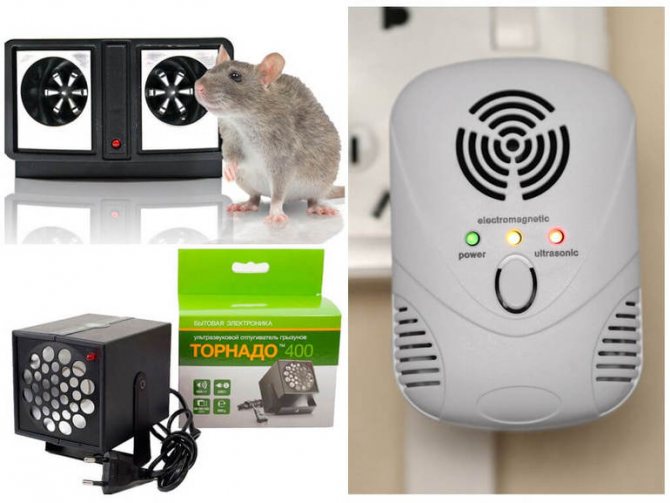

Mice are very sensitive to high frequency sound vibrations that cannot be heard by the human ear. The principle of action of ultrasonic scarers is based on this. If you turn on such devices in each room, rodents will feel panic and pain, falling within their range. In this case, the instinct of self-preservation forces the pests to leave the dangerous territory.
Ultrasound is the most effective deterrent method known. It is important that the device is absolutely harmless to pets and people. Good protection against mice - "Grad" and "ElectroKot". The devices operate using ultrasonic vibrations and are not addictive.
"Grad" scares away pests on an area of 500 square meters. m., runs on batteries or a 220 V network. Once within the range, the mice lose their ability to navigate in space, feel pain and discomfort. In this case, the functions of the nervous system are disrupted. The animals cannot eat, drink and reproduce until they leave the territory.
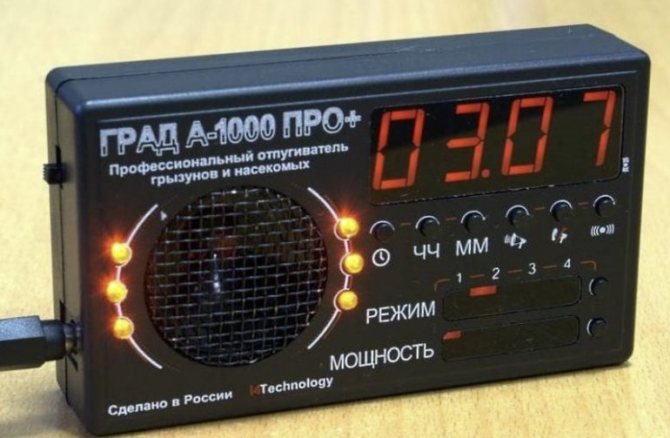

The exposure area of the "ElectroKot" device is 200 square meters. m. Power source - 220 V. There are 2 operating modes: night and day. The mechanism of action is based on the generation of ultrasonic waves of various frequencies. Usually, the entire population of mice leaves the area after 8-10 days. It is noticed that after this they do not return.


